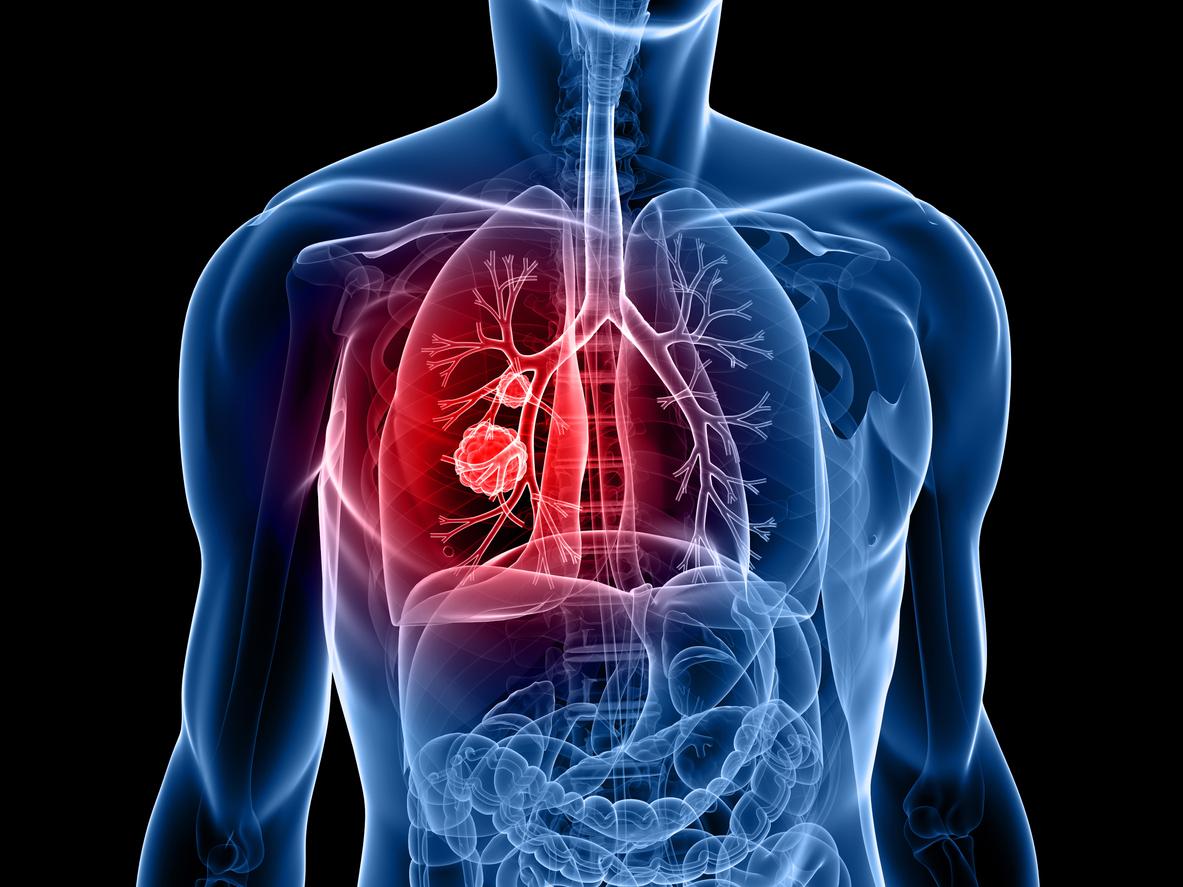While early detection is key to increasing the chances of survival, here are the symptoms of lung cancer to watch out for.

- Symptoms of lung cancer can be numerous and non-specific.
- They can be respiratory but also be more general.
- Recognizing the warning signs can increase the chances of survival.
Although lung cancer can be present long before symptoms start, there are warning signs that can help you diagnose and respond quickly. They can be respiratory but also non-respiratory, recalls theHealth Insurance.
Lung cancer: what are the respiratory symptoms?
As for the respiratory symptoms, they are multiple, but they are not specific, since they can be present in other diseases. In smokers or former smokers, a cough, sometimes seemingly innocuous, can be a sign of cancer if it persists or worsens.
New onset shortness of breath or worsening breathing difficulties, pain in the chest or shoulders, coughing up blood (called hemoptysis), repeated lung infections such as bronchitis or pneumonia should also attract attention.
Another of the respiratory symptoms to look out for is a change in the voice (timbre or intensity). She often becomes hoarse or hoarse, or wheezes while breathing.
Lung cancer: abnormal syndromes should be monitored
Medical advice is also necessary in the presence of certain non-respiratory symptoms such as abnormal and prolonged fatigue (asthenia), difficulty swallowing (dysphagia), recent loss of appetite or involuntary weight loss.
Experts also mention a particular symptom: edema of the neck and eyelids in the morning on waking due to compression of the superior vena cava by lymph nodes present in the thorax.
In addition, any lasting anomaly that does not regress spontaneously must be monitored: “symptoms accompanying lung cancer but unrelated to the lungs may appear. They are grouped under the name of “paraneoplastic syndromes””, explains theHealth Insurance.
Lung cancer: early diagnosis increases chances of survival
Lung cancer is the 3e most common cancer and the 1D cause of death from cancer in France, recalls the National Cancer Institute.
The earlier the diagnosis of lung cancer is made, the better the management of the disease will be and the greater the patient’s chances of survival. This is why it is important to consult a doctor as soon as the first symptoms appear, insists the Foundation for Cancer Research.


















